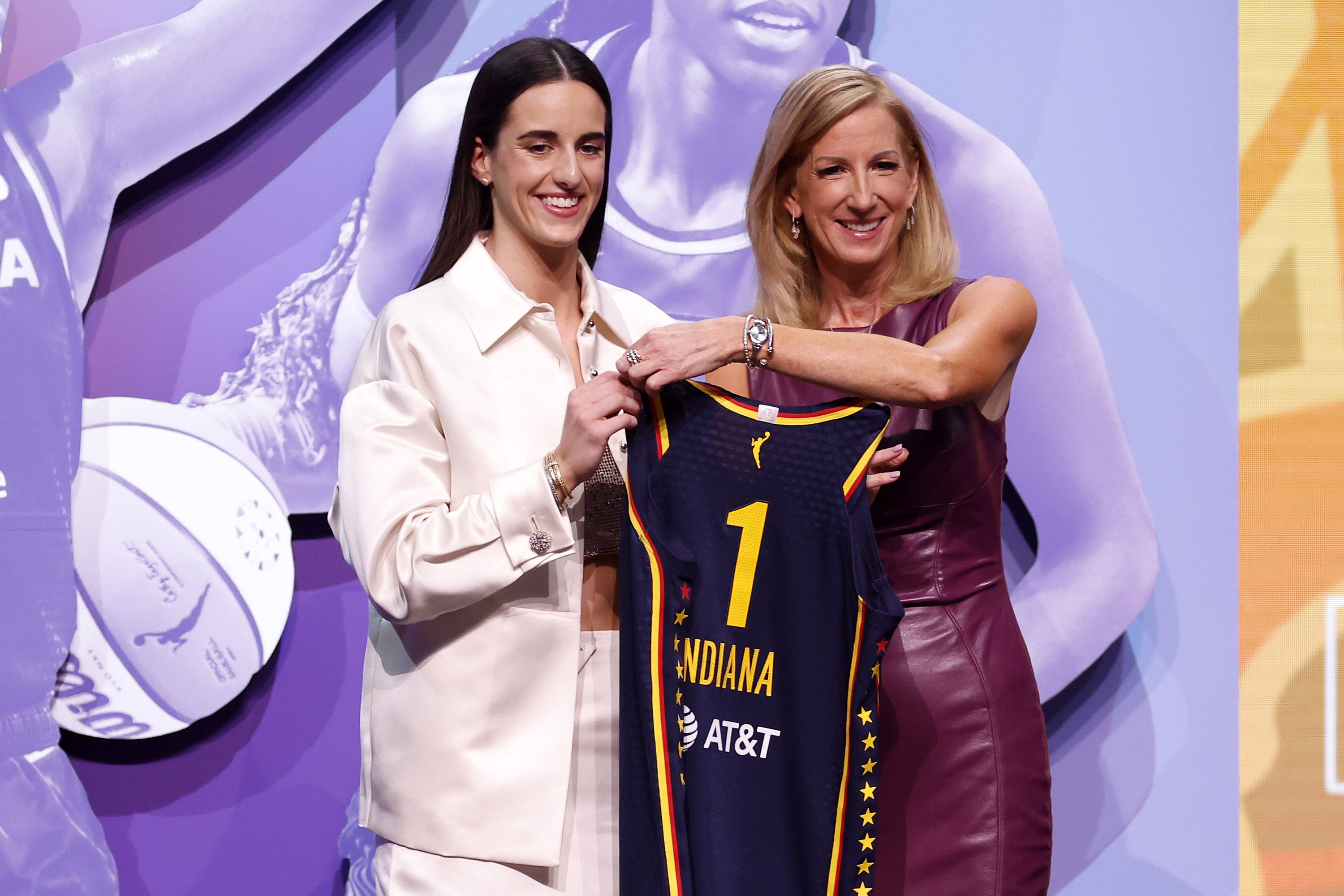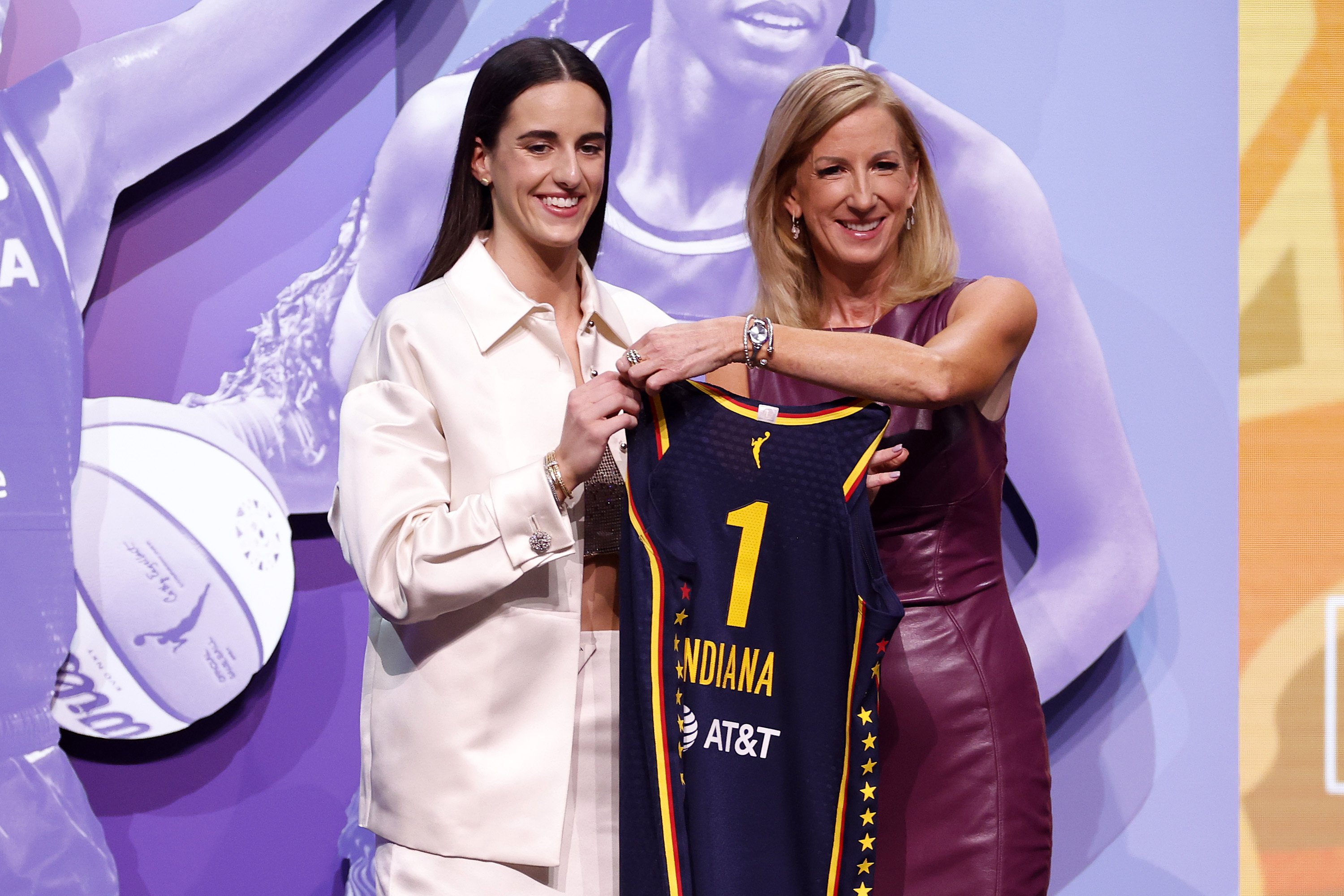

The wider world — a.k.a. those who came to women’s basketball via Caitlin Clark’s superstardom at Iowa — was shocked to learn her forthcoming WNBA salary after she was selected No. 1 overall by the Indiana Fever during the league’s draft on Monday night. A tweet from the basketball aggregation account @TheDunkCentral went viral as it laid out the (relatively) paltry sum Clark can expect to see for the duration of her rookie contract.
Here’s the post.
To be fair, the listed salaries are shockingly low for the best college player of her generation. The first year came in at $76,535, with a raise each year, then a fourth-year option for $97,582. And the Indiana Fever will likely pick up that fourth-year option. Because…duh.
Over four years, the contract could be worth around $338,056. Divided up, that’s an annual salary well over the American average of $59,540 but, um, not so much for a superstar.
But it’s important to note that this is not the Indiana Fever cheapening out on Clark’s contract. In most American sports, rookie pay is determined by where you’re drafted. The WNBA is no exception. Rookie salaries are, in most cases, defined by the collective bargaining agreement between the players’ union and the league. So this was always going to be Clark’s pay. She knew that the second she decided to leave Iowa for the league.
Lots of folks online, however, were flabbergasted at the salary. Again, that’s understandable considering the size of her stardom and the record-breaking attention she, and others, brought to women’s basketball over the past two seasons.
Lots of folks pointed out — and it is obvious — that Clark will be very rich regardless of her rookie contract. She already makes millions on endorsement deals and will make even more as a professional athlete.
But to use the endorsements as an apologia for her low salary isn’t quite right either. To anyone with a pulse, it’s clear Clark is worth more than $76,000 a year. If anything, the fact that Clark can make millions with endorsements proves her salary should be higher.
To better understand what happened here, we’ve got to go back to that collective bargaining agreement, a.k.a. the CBA, between the players’ union and the league. The meat of most CBAs in sports defines how the league and players will split revenue. For the four major male sports — NFL, NBA, MLB, and NHL — around half of league revenue goes to the players. (This is a gross simplification but you get the picture.) The league takes half of the pot, and the players get the other half. From there, a CBA will define things like a rookie pay scale, veteran minimum salaries, max salaries, and other such things involving the contract between players and the pro league.
The CBA for the WNBA, however, isn’t as generous to the players. A detailed Bloomberg analysis from April 2023 found that base salaries as a share of total revenue stood at just 9.3 percent in the WNBA. As the Bloomberg article pointed out, revenue is also defined differently in the WNBA compared to the NBA. Team revenue — cash from ticket sales, merch, food, local TV deals, etc. — is separate from league revenue, things like national media deals or corporate sponsorship.
Team revenue is used by the 12 WNBA franchises to pay player salaries while league revenue, in theory, could be shared directly with players. I say in theory because that league revenue only becomes available to players if the WNBA hits its aggressive goals, including 20 percent year-over-year revenue growth. It’s an incremental-growth revenue-sharing system, in comparison to the NBA’s overall revenue-sharing system. Bloomberg noted in its 2023 report that revenue sharing had never been triggered under the WNBA’s CBA.
Yet, the WNBA has shown clear signs of growth in recent seasons, even before the expected boon of adding Clark into the mix. It seems clear players deserve more than this CBA is dishing out. The good news for them is that the players’ union can opt out of the contract after the 2024 season.
In the wake of Clark’s WNBA contract — lots of folks seemed to discover WNBA salary levels via the viral tweet — longtime supporters of the league are a bit annoyed. And with good reason: Sports reporters Jemele Hill and Sarah Spain tweeted out further context regarding the contract and called for fans to simply support the league.
As they pointed out, it makes sense that the WNBA, which is only 27 years old, isn’t a financial powerhouse like the NBA. The NBA took a long time to become the NBA. Top players are making $50 million per year now, but they weren’t always making seven figures. Generation by generation it grew. That’s how the WNBA will see a spike in pay.
Not for nothing, but some 18.7 million people watched Clark fall to undefeated South Carolina in the NCAA championship game — that was more than the men’s NCAA final. NBA Finals games haven’t done numbers like that since 2019. Last year’s WNBA finals, however, averaged just 728,000 viewers, which was its highest figure in 20 years.
If Clark, alongside established WNBA stars like A’ja Wilson and Breanna Stewart, can bring a portion of that NCAA crowd to the WNBA, then salaries will increase significantly. In the sports world, when it comes to finances, TV ratings and media rights contracts are all that really matter. Big numbers are undeniable.
So yes, Clark is underpaid. Using the standard of most leagues’ revenue-sharing models, her rookie contract should be higher. And yes, she will still be quite rich, no matter her salary.
But what matters from here, for both Clark’s bank account and the rest of the league, is seeing if the ratings boom from her college career transfers to the WNBA. And just FYI, WNBA League Pass — where you can stream all the games — is just $35 for the year. Quite the steal to watch the biggest show in basketball over the last two years.
